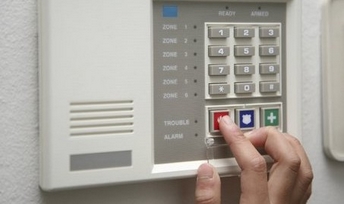Most homeowners picture a home security system that monitors windows and doors. When a window or door is opened, the system either sets off an alarm or notifies authorities (or in some cases, both). What they don’t consider is the fact that there are a number of important factors related to that home security system that can make their home vulnerable – even with the latest, greatest technology installed.
Here are some of the most overlooked home security system factors we’ve seen:
- Arming the system. This should be basic. If you have an alarm system, it needs to be armed. Otherwise, it won’t work. Yet, among homes that are invaded that have alarm systems, a significant percentage didn’t have the system armed. You can avoid this by having the system arm itself on a schedule, or through a remote access system.
- Ancillary monitoring. Home security systems are there, primarily, to make sure that you’re notified if someone tries to break in. However, the very presence of an alarm (and in many cases, someone to monitor those alarms remotely) lends itself to monitoring other things. Many home security systems come with fire alarms built in, but you can and probably should add in things like carbon monoxide monitors, or even moisture monitors for your basement to detect flooding.
- Unusual points of entry. Most home security systems monitor ground-level windows and doors. You might think that, because the window is on the second story, it’s not a valid point of entry for a home invader. The fact is that you need to protect and monitor every point of entry into the home, including windows on higher floors and even skylights. If there is an opening big enough for a person to fit through, it needs to be monitored.
- Neighbourhood alerts for unmonitored systems. You might have a do-it-yourself home security system that, rather than alerting a monitoring station or central dispatch, simply creates a loud noise. That’s going to scare off some burglars, but not all of them. And, if you’re not at home there’s no reason to think your neighbors are going to call the police just because the alarm is going off. That’s why you need to talk to your neighbours, let them know it’s OK to do so, and encourage them to call it in if they hear your alarm go off. Sometimes a 30-second conversation about your new home security system can add tons of protection.
- Batteries. Today’s wireless home security systems have batteries that need to be replaced from time to time. Making sure that the batteries are fresh and that they’re replaced before they stop functioning is the tricky part. Fortunately, many home alarm systems have an early warning feature when the battery is getting low.
With just a little bit of extra effort, you can dramatically increase the effectiveness of your home security system, and avoid many common mistakes that lead to home invasions.
Madison Parker is a security expert whose interests range from personal to home security systems. Get more tips and advice on the blog Home Security Systems!
Advertisement






